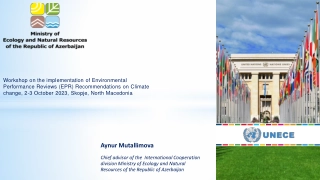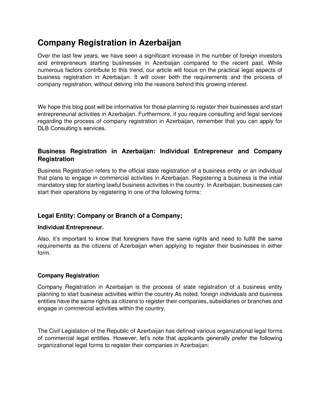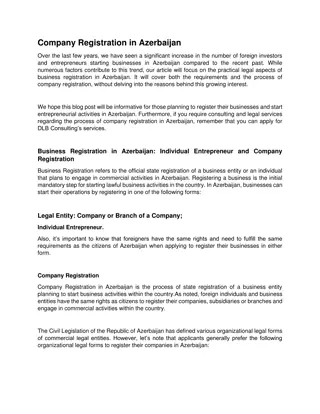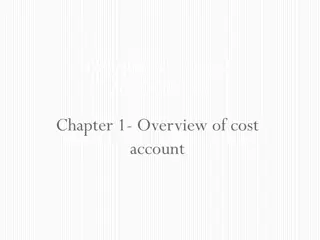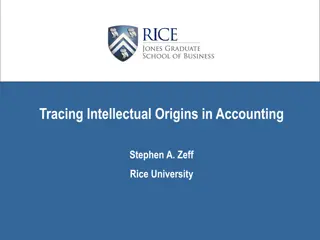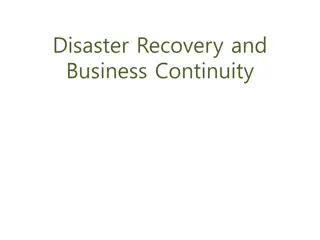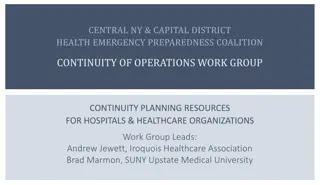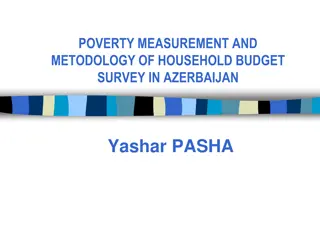Accounting Reform Efforts and Continuity in Azerbaijan
Harmonization of Azerbaijani accounting laws with European Union Directives has led to significant reforms, aligning with International Financial Reporting Standards and enhancing financial reporting practices across different sectors. Enactment of regulatory documents further supports the implementation of these accounting standards, driving comprehensive state accounting policy changes.
Download Presentation

Please find below an Image/Link to download the presentation.
The content on the website is provided AS IS for your information and personal use only. It may not be sold, licensed, or shared on other websites without obtaining consent from the author.If you encounter any issues during the download, it is possible that the publisher has removed the file from their server.
You are allowed to download the files provided on this website for personal or commercial use, subject to the condition that they are used lawfully. All files are the property of their respective owners.
The content on the website is provided AS IS for your information and personal use only. It may not be sold, licensed, or shared on other websites without obtaining consent from the author.
E N D
Presentation Transcript
Accounting Reform Efforts and Continuity
Harmonization of Azerbaijani accounting laws with the European Union Directives The recent economic development of Azerbaijan, coupled with an influx of foreign investors and stronger partnership companies required reforms, which led to a process of harmonizing Azerbaijani lawswith the EU Directives. with substantial European Union accounting
Harmonization of Azerbaijani accounting laws with the European Union Directives Alignment of the Accounting Law of Azerbaijan with the EU Directives led to implementation of the International Financial Reporting Standards and the IFRS-based National Accounting Businesses, as well as Standards for Budget-Funded Institutions, based on International Accounting Standards for Public Sector Entities; thereby, the institutions and businesses in question started developing financial reports in line with said standards. Thus, a comprehensive state accounting policy resulted in substantial accounting reforms. Standards Accounting for the National
Accounting milestones Following the 2004 enactment of the Accounting Law of Azerbaijan, financial reporting has followed the scheme below: Public interest entities report in compliance with the International Financial Reporting Standards; Businesses other than public interest entities and small enterprises report under the National Accounting Standards for Businesses, or, depending on their respective systems, the International Financial Reporting Standards; Spending units, municipalities and extrabudgetary state funds report under the National Accounting Standards for Budget-Funded Institutions; Non-governmental Accounting Standards for Non-Governmental Organizations. organizations report under the National
Accounting milestones A number of regulatory documents, including those listed below, were enacted to implement accounting and financial reporting practices in accordance with the International Financial Reporting Standards and National Accounting Standards: An Accounting Guidance on National Accounting Standards for Budget-Funded Institutions, approved by the Finance Ministry s Ordinance No.Q-02 of February 9, 2012; An Accounting Regulation Reporting Standards and National Accounting Standards for Businesses, approved the Ordinance No.Q-01 of January 30, 2017; on International Financial Finance Ministry s Collegial
Accounting milestones The IFRS transition was managed by the Ministry of Finance and financially and institutionally supported by the World Bank. A Corporate and Budget Sector Reporting Project was active in 2009-2015, involving the Swiss Secretariat and Japanese Government s support, and the Government of Azerbaijan and World Bank s financing. The project delivered financial reporting training for accountants of budget-funded and non-governmental organizations. Re-qualification training accounting and auditing faculty under Bachelor s and Master s Programs at higher education schools, in conjunction with the Ministry of Education. was organized for the
Accounting milestones Implementation of the state-of-the-art accounting and reporting arrangements, new centralized and user-oriented management skills as well as software development for reporting automation are key to continuing efforts to implement best practice accounting. A Financial and Accounting Reporting System for Budget Institutions (FARABI) has been developed under the Finance Ministry s Corporate and Budget Sector Reporting Project in order to streamline and consequently automate financial and other reporting. The system is designed to ensure that budget-funded institutions accounting and reporting practices comply with the international and national accounting standards, including automated and timely financial reporting. The above described goals allow for a more effective financial and HR management, time and cost saving, and efficient documentation. information systems, development of
Reform continuity The Ministry of Finance has drafted a Law amending the 2004 Accounting Law of Azerbaijan as a way of continuing the reforms said Law had initiated. The draft contains provisions ensuring full transition to international financial adoption of accounting regulations. reporting standards, and
Proposed standards International Financial Reporting Standards for Small and Medium Enterprises International Financial Reporting Standards International Accounting Standards for Public Sector The proposed draft deals mostly with 3 different international standards.
Proposed accounting regulations SME IFRS- based accounting regulation IASPS- based accounting regulation IFRS-based accounting regulation Accounting regulation for small enterprises Accounting regulation for political parties The proposed draft provides for implementation of accounting regulations for the entities that are subject to the current accounting laws and regulations
Proposed amendments to the Accounting Law Record-keeping entities Public law entities Businesses Not-for-profit institutions Large and medium Public interest institutions and Micro and small Political parties municipalities Other not-for- profit entities enterprises enterprises entities Budget NGO s
Proposed amendments to the Accounting Law Public interest entities International Financial Reporting Standards Financial reporting IFRS-based accounting regulation Accountin g
Proposed amendments to the Accounting Law Micro and small enterprises (depending on their choice) Financial reporting OR IFRS for SME IFRS Accountin g Accounting regulation for small enterprises IFRS-based accounting regulation SME IFRS-based accounting regulation
Proposed amendments to the Accounting Law Medium enterprises (depending on their choice) Financial reporting OR IFRS for SME IFRS Accountin g IFRS-based accounting regulation SME IFRS-based accounting regulation
Proposed amendments to the Accounting Law Large enterprises (depending on their choice) Financial reporting OR IFRS for SME IFRS Accountin g SME IFRS-based accounting regulation IFRS-based accounting regulation
Proposed amendments to the Accounting Law PUBLIC LAW ENTITIES Other public law entities Does the Charter authorize the entity to engage in business operations? No Yes IFRS for SME Financial reporting International Accounting Standards for Public Sector or IFRS IFRS Accounting practices will comply with the accounting regulations as defined under this Law depending on the accounting standard they choose. Accountin g IFRS-based accounting regulation
Proposed amendments to the Accounting Law Not-for-profits Non- Municipaliti es and budget institutions governmen tal organizatio ns Political parties Other not- for-profits The international financial reporting standards as defined under this Law applicable depending on the nature of their operations Financial reporting International Accounting Standards for Public Sector Reporting form established by the competent authority Reporting form established by the competent authority Accounting regulation approved by the competent authority in line with the general IASPS principles The accounting regulation applicable per the international standards they use. Accounting regulation for political parties IASPS-based accounting regulation Accountin g
Reporting form established by the competent authority Certified Professional Accountants 1 3 Chief accountants of government-controlled legal entities, credit institutions, insurance companies, investment funds and fund managers, non-government (private) social funds, as well as licensed security market actors 1, 2, 3, 4 li blok-At least two professional accountants for companies providing accounting services under contract to the entities specified in squares 1, 2, 3 and 4, and at least one professional accountant for unincorporated individual entrepreneurs providing such services Chief accountants of budget institutions 2 4 Chief accountants of public law entities required to publish annual financial statements or consolidated financial statements Chief accountants of businesses that have indicators higher than two of the criteria defined by the competent authority as of the reported date (annual income, average annual staff number and closing balance sheet)


